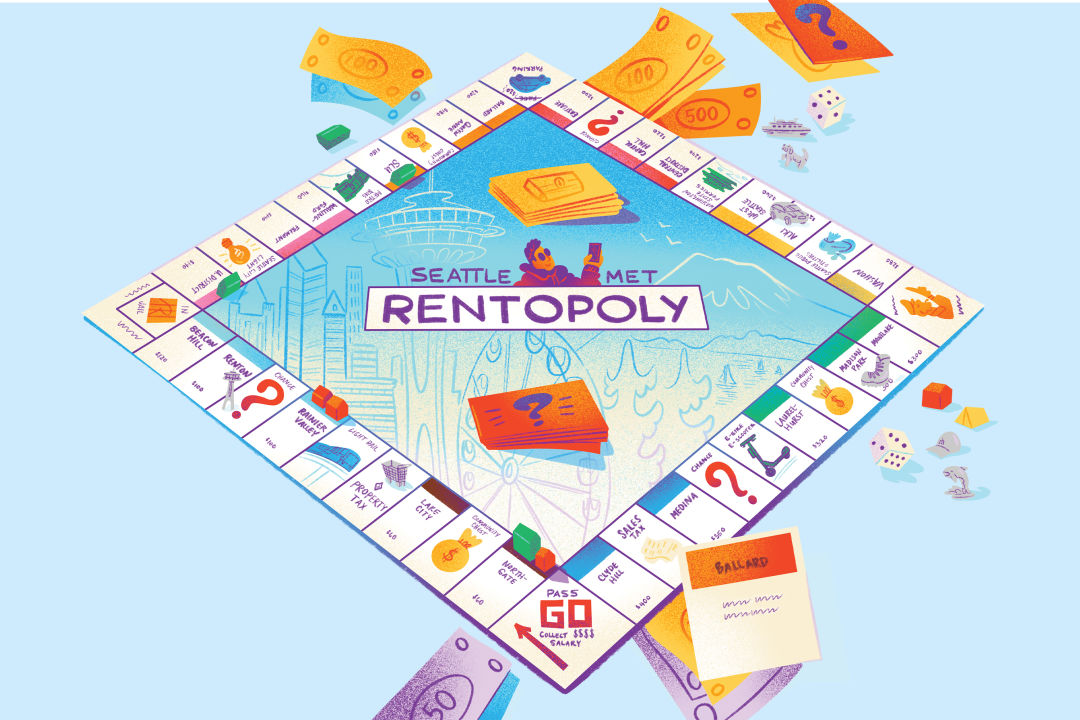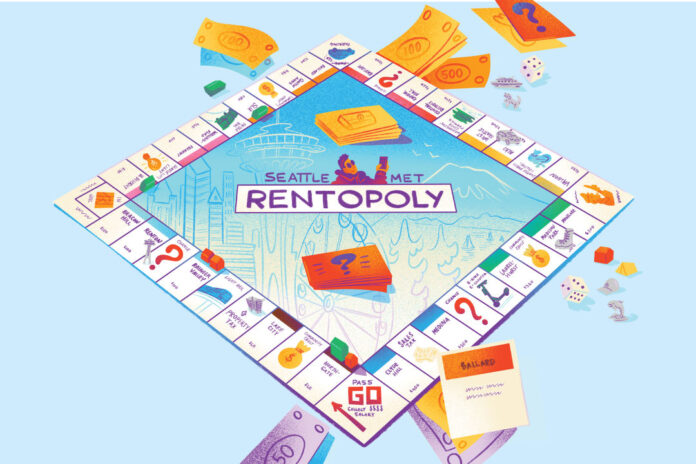This post was originally published on this site

If renting in Seattle were a game, it would require skill, luck, and damn good credit. Tenants vie for a good apartment while navigating complex ordinances, new bills, and perpetually rising costs. Go ahead, roll the dice. But before you do, make sure you know all the rules.
Your security deposit got docked
Landlords can’t keep your deposit for normal wear like scuffed wood floors or a wobbly toilet. The digital library at Northwest Justice Project’s Washington LawHelp.org holds lawyer-drafted letter templates for resolving security deposit disputes and legalese-free explanations of tenants’ rights.

Neighborhood shopping
Denny Triangle, Belltown, Pike Place Market, and South Lake Union have some of the city’s highest rents, while pockets of Bitter Lake, Beacon Hill, Rainier Valley, and Mount Baker boast the most affordable.
Broken sink
The clock is ticking. Landlords must begin to fix some problems within 24 hours: those that leave tenants with a safety issue or without water, electricity, or (in winter) heat. They have 72 hours to get going on repairs to major appliances and critical plumbing issues, and 10 days for anything else.

Application fee
Nonrefundable application fees can only amount to the actual cost of any screenings; in Seattle, anything above $45 per adult is a potential red flag.
Rent hike
Washington’s HB 1217, the 2025 rent stabilization bill sponsored by West Seattle’s state senator, Emily Alvarado, caps rent increases at 7 percent plus inflation, with a hard stop at 10 percent. In the law’s first quarter, just eight landlords across the state were caught breaking it. They were fined $2,000 each. 2026 rent hikes will be capped at 9.683 percent.

Navigate the First-in-Time Ordinance
If you’re not first, you’re last. The First-in-Time Ordinance requires landlords to offer a rental agreement to the first qualified applicant who submits a complete application. The law, unique to Seattle when first passed in 2016 to avoid housing discrimination (Portland has one now, too), faced several legal challenges before the US Supreme Court declined to hear its case in 2020, deferring to the Washington Supreme Court, which had unanimously ruled the edict legal.

How to win housing in a first come, first served world
- Quit your job. Welcome to your new position: house hunter. OK, not really, but getting in first requires loads of free time to quickly act on new listings. Clear your schedule.
- Have all the common documents and information ready to speed-type into an application: income verification, references from previous landlords, birth dates of all occupants, the works.
- When in doubt, tour. Many landlords don’t consider an application complete until the prospective tenant tours the property, whether in person or via a live video call.
- Contact property managers directly. It’s not uncommon for hundreds of applicants to submit prefilled Zillow apps within hours of a new listing going live, but don’t get discouraged. Talk with a human, set up a tour, and be ready to sign if you like what you see.

Rental Gymnastics
About 50 percent of renting households in Washington are rent-burdened. That means they pay more than 30 percent of their incomes on rent plus utilities.
King County by the Numbers
- $2,146 Average rent
- $2.78 Average rent per square foot
- 771 Average square footage
- 263,503 Total number of units
















